Cosmopolitanism in the Fictive Imagination of W.E.B. Du Bois
Critical Africana Studies: African, African American, and Caribbean Interdisciplinary and Intersectional Studies
Series Editor : Reiland Rabaka, University of Colorado at Boulder
Series Editorial Board
Christel N. Temple, University of Pittsburgh;
Martell Teasley, University of Texas at San Antonio;
and Deborah Whaley, University of Iowa
The Critical Africana Studies book series features scholarship within the emerging field of Africana studies, which encompasses such disciplines as African studies, African diasporan studies, African American studies, Afro-American studies, Afro-Asian studies, Afro-European studies, Afro-Islamic studies, Afro-Jewish studies, Afro-Latino studies, Afro-Native American studies, Caribbean studies, Pan-African studies, Black British studies and, of course, Black studies. The Critical Africana Studies book series directly responds to the heightened demand for monographs and edited volumes that innovatively explore Africa and its diaspora employing cutting-edge critical, interdisciplinary, and intersectional theory and methods.
Titles in the Series
Dialogues across Diasporas: Women Writers, Scholars, and Activists of Africana and Latina Descent in Conversation , Edited by Marion Rohrleitner and Sarah Ryan
Rastafari Reasoning and the RastaWoman: Gender Constructions in the Shaping of Rastafari Livity , By Jeanne Christensen
Understanding the Black Flame and Multigenerational Education Trauma: Toward a Theory of the Dehumanization of Black Students , By June Cara Christian
Concepts of Cabralism: Amilcar Cabral and Africana Critical Theory , By Reiland Rabaka
Frantz Fanon, My Brother: Doctor, Playwright, Revolutionary , By Joby Fanon, Translated by Daniel Nethery
Facing South to Africa: Toward an Afrocentric Critical Orientation , By Molefi Kete Asante
Black Muslims and the Law; Civil Liberties from Elijah Muhammad to Muhammad Ali, By Malachi D. Crawford
The Negritude Movement: W.E.B. Du Bois, Leon Damas, Aime Cesaire , Leopold Senghor, Frantz Fanon, and the Evolution of an Insurgent Idea , By Reiland Rabaka
Cosmopolitanism in the Fictive Imagination W.E.B. Du Bois: Toward the Humanization of a Revolutionary Art , By Samuel O. Doku
Cosmopolitanism in the Fictive Imagination of W.E.B. Du Bois
Toward the Humanization of a Revolutionary Art
Dr. Samuel O. Doku
LEXINGTON BOOKS
Lanham Boulder New York London
Published by Lexington Books
An imprint of The Rowman & Littlefield Publishing Group, Inc.
4501 Forbes Boulevard, Suite 200, Lanham, Maryland 20706
www.rowman.com
Unit A, Whitacre Mews, 26-34 Stannary Street, London SE11 4AB
Copyright 2015 by Lexington Books
All rights reserved . No part of this book may be reproduced in any form or by any electronic or mechanical means, including information storage and retrieval systems, without written permission from the publisher, except by a reviewer who may quote passages in a review.
British Library Cataloguing in Publication Information Available
Library of Congress Control Number: 2015952386
ISBN: 978-1-4985-1831-4 (cloth : alk. paper)
eISBN: 978-1-4985-1832-1
 The paper used in this publication meets the minimum requirements of American National Standard for Information SciencesPermanence of Paper for Printed Library Materials, ANSI/NISO Z39.48-1992.
The paper used in this publication meets the minimum requirements of American National Standard for Information SciencesPermanence of Paper for Printed Library Materials, ANSI/NISO Z39.48-1992.
Printed in the United States of America
Contents
Cosmopolitanism in the Fictive Imagination of W.E.B Du Bois: Toward the Humanization of a Revolutionary Art is a book meant for students, critics, scholars, researchers, and the public at large interested in the great works of Dr. W.E.B. Du Bois. Informed by my dissertation project, the book can be useful in the arena of scholarly endeavors and for teaching. Cosmopolitanism, as a revolutionary art, in the exegesis of W.E.B. Du Boiss fiction allows a thorough and complete analysis of his five novels and debut short story, Of the Coming of John. Analyzing the fiction and nonfiction of Dr. W.E.B. Du Bois with themes of cosmopolitanism and Africology is certainly an ambitious project because of the many diverse topics and critical issues that garnered his attention in his life time. Although this book focuses mainly on the novels of Du Bois, it has, nevertheless, proven to be an ambitious undertaking, as I delved into, hitherto, uncharted waters with the use of the variants of cosmopolitanism and Africology in deconstructing his fiction. My hope is that in such an undertaking, I have made an invaluable contribution to existing scholarship on W.E.B. Du Bois.
At this juncture, I am grateful to Professor Reiland Rabaka and my blind reviewer for their useful comments that prompted a rethinking of Africology and Du Boiss other texts on Africa as part of the analytical framework of the book. My appreciation also goes to Dr. Segun Gbadegesin of Howard University for introducing me to the concept of Omoluabi (Good Character). Furthermore, it would be a grave error in judgment if I do not mention the names of Drs. Christopher Shinn and Gregory Hampton also of the Department of English at Howard University for the advice and the encouragement. My sincere thanks also go to Dr. Laura Rosenthal of the University of Maryland, College Park and Dr. Christopher Wheatley of Catholic University for their insight. I appreciate profoundly the invaluable support, both directly and indirectly, of Dr. Wayne Frederick, President of Howard University; Dr. Dana Williams, Chair of the Department of English; Ms. Tanya Hardy of the English Department; Dr. Sandra Shannon, Professor in the English Department; Dr. Vernessa White-Jackson, Chair of the Department of World Languages and Cultures; Dr. Anthony Wutoh, Dean of Howard University School of Pharmacy; and Dr. Stephen Arhin of the College of Engineering, Architecture, and Computer Science of Howard University.
Dr. Rachel Petty, Provost of UDC, Mr. Terry Prescott (Assistant Provost); Dr. April Massey, Dean of the College of Arts and Sciences; Dr. Connie Webster, Associate Provost; Ms. Laverne Hill-Flanagan, Registrar; Ms. Sandra Carter, Director of the TRIO and Upward Bound Programs; Ms. Mary Roberts, Ms. Denise Slaughter, Dr. Anthony Mansueto, Dr. Alex Howe, Dr. Patricia Maida, and Dr. Elsie Williams, all of the University of the District of Columbia deserve mention for their encouragement over the years. And to my publishers, Lexington Books, especially Mr. Joseph Parry, Ms. Sara Craig, and Ms. Brighid Stone, I say thank you for your expertise. Last but not least, my gratitude goes to the founder of Divine Word International Ministries, Bishop (Dr.) Kofi Adonteng-Boateng, the pastors, and the congregation for their prayers and support. To members of my family, I appreciate your support and well wishes as well. To the Dean of the University of the District of Columbia David A. Clark School of Law, Dr. Shelley Broderick; out-going dean of admissions, Ms. Vivian Canty, and the newly appointed President of UDC, Dr. Ronald Mason, thanks for your support. To the President of NOVA, Dr. Scott Ralls; Executive Vice President of Academic and Student Services, Dr. Mel Schiavelli; Dean, Dr. Paul Mann; Assistant Dean of Composition, Dr. Cheri Lemiuex Spiegel, Associate Dean, Jennifer Daniels, Interim Provost, Dr. Charlotte Calobrisi, and Associate Dean of English, Dr. Jean DuBro, I thank you for your support. I also express my gratitude to my faculty colleagues, Administrative Assistants, Mrs. Leslie Czaplicki, Ms. Mary Atkins, and Ms. Sharon Tindall as well as Senior Administrative Assistant, Judy Benavides, and students at NOVA and my former students at Howard University and the University of the District of Columbia Community. College. Also, I thank my daughter, Ms. Adelaide Doku who helped me with typing the index.
Next page
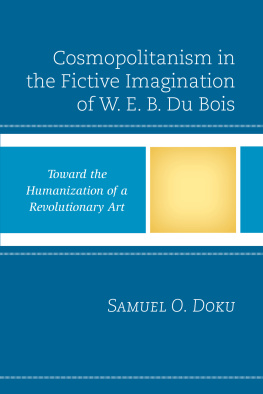

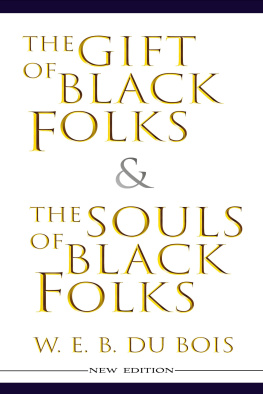
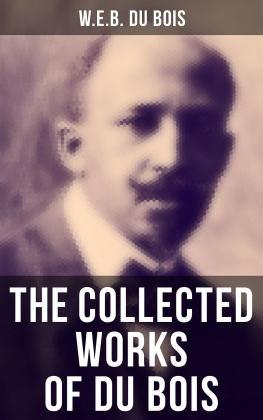
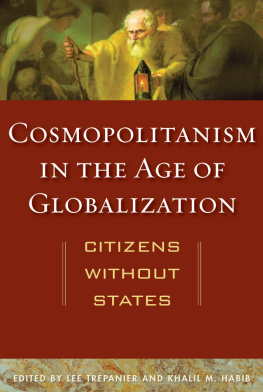
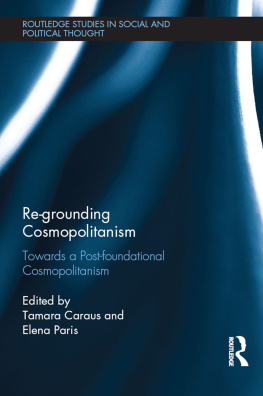
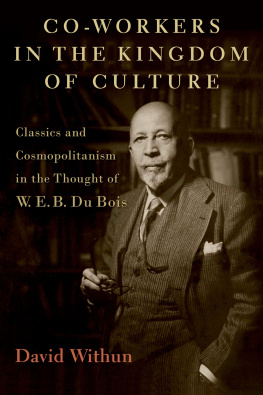
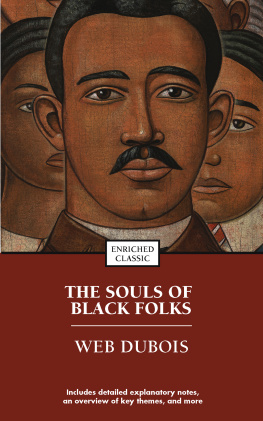
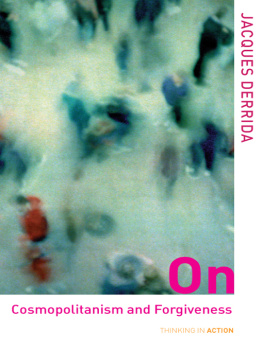
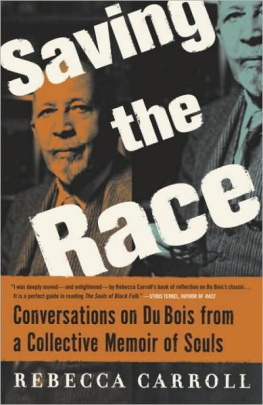

 The paper used in this publication meets the minimum requirements of American National Standard for Information SciencesPermanence of Paper for Printed Library Materials, ANSI/NISO Z39.48-1992.
The paper used in this publication meets the minimum requirements of American National Standard for Information SciencesPermanence of Paper for Printed Library Materials, ANSI/NISO Z39.48-1992.